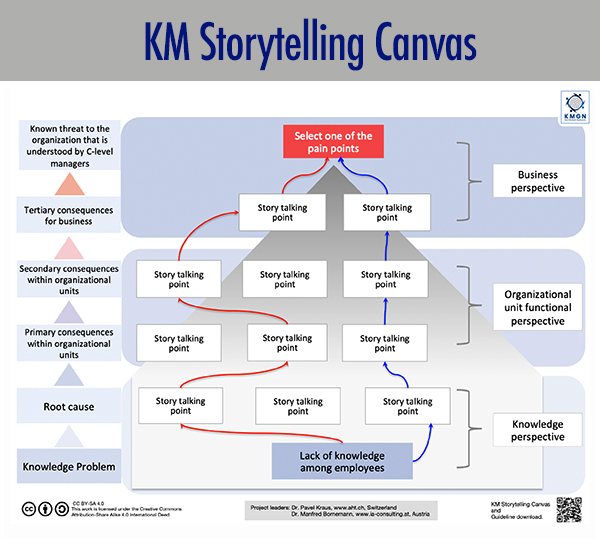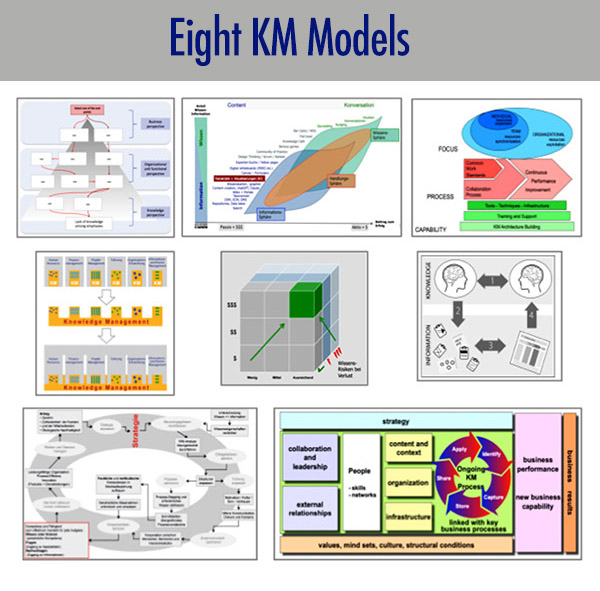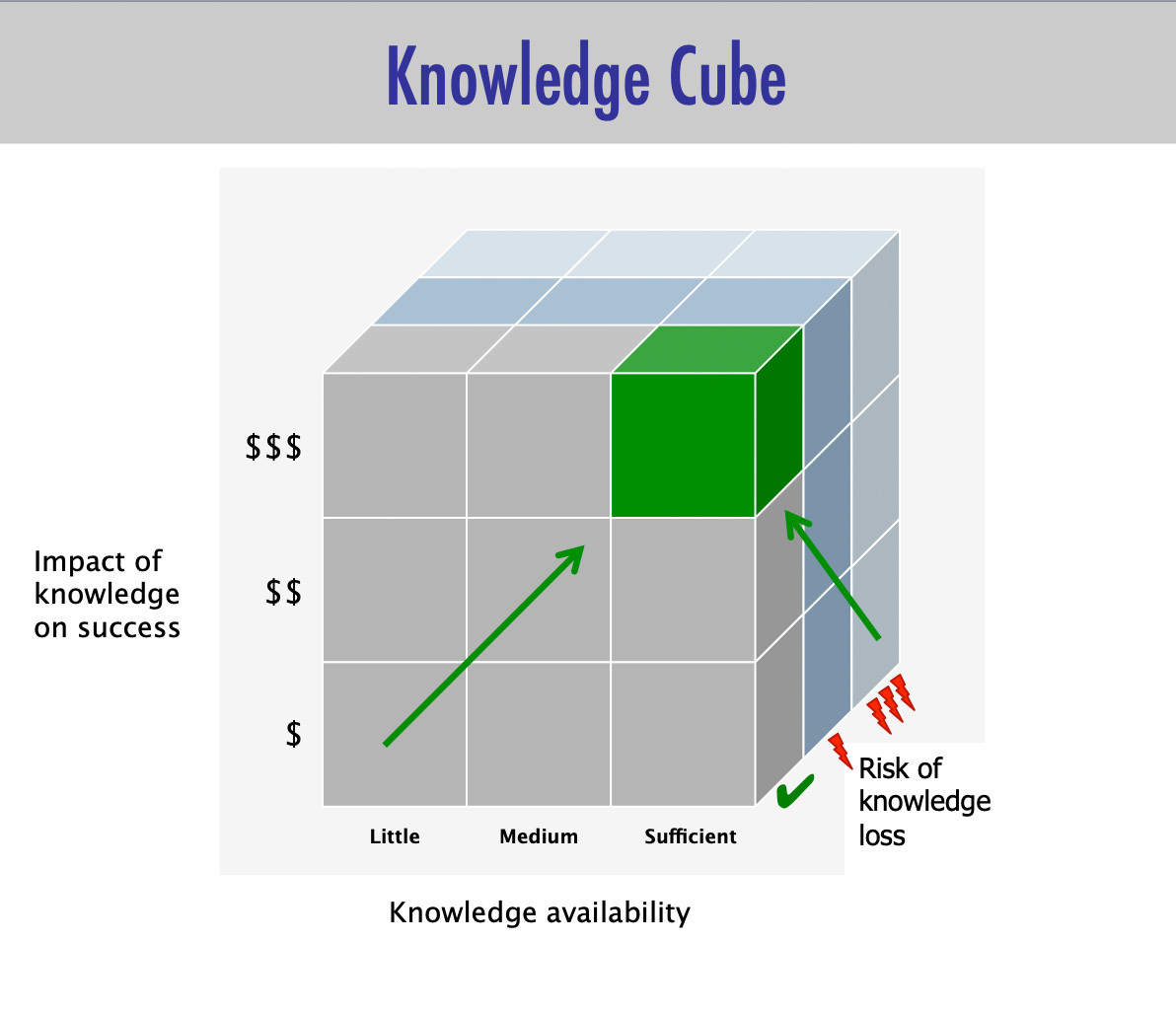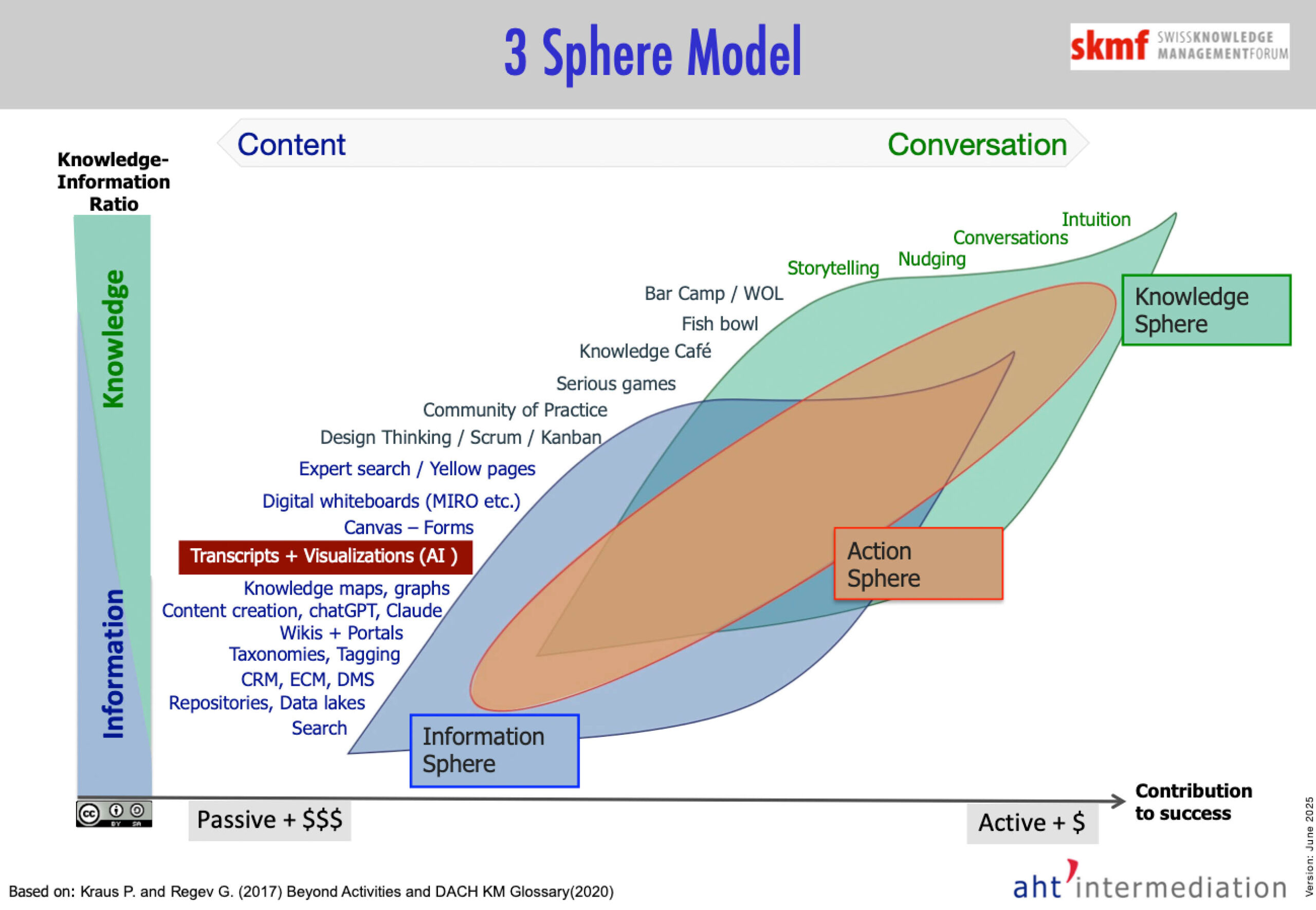Services
Services|For Knowledge Managers
At AHT, we specialize in Knowledge Management Solutions that turn knowledge into a tangible asset. Our services are built around a proven portfolio of models and tools – including the KM Storytelling Canvas, Knowledge Cube, 3 Sphere Model, and other frameworks – developed over two decades of real-world KM projects.
We support:
- Knowledge managers looking to demonstrate clear business value and secure their jobs
- KM consultants who want to get more business with clients
- R&D managers who need to retain and apply critical knowledge
- Organizations aiming to avoid costly knowledge loss
- Companies that want to look beyond the AI hype
- Creation of a KM strategy that convinces executives of the power of KM
Our KM solutions are pragmatic, impact-oriented, and tailored to your organization’s structure, challenges, and goals. Whether you’re launching a KM initiative, embedding KM into daily operations, or improving collaboration and project success, we provide the clarity, methods, and coaching needed to make it work. The basis of our work are the definitions compiled in the DACH KM Glossary (in German).

KM Storytelling Canvas and Guideline
As the «Business Aligned Knowledge Management» project leaders, we are pleased to have introduced our new KM Storytelling Canvas and guideline. This tool is the result of this project and will help to secure KM initiatives and KM jobs by convincing executives that KM is an important strategic factor in achieving their personal goals.
Together with Manfred Bornemann, we held three sessions on this topic during Global KMGN Knowledge Week. At the Knowledge Camp in Berlin, which attracted over 190 participants, the topic met with great interest, especially among those who are looking for a job or have difficulty convincing their superiors of the value of knowledge management.
The KM Storytelling Canvas template and guideline can be downloaded here.

Models helping to explain and understand the power of knowledge management.
Between 1998 and 2025, we have developed eight models for various purposes. They all serve to explain key aspects of knowledge management.
They have been developed empirically. This means that, following a successful KM project, the main success factors have been condensed into one of these models.
During the creation of these models Dr. Pavel Kraus was assisted by various colleagues from Roche Diagnostics, Swiss Knowledge Management Forum and Knowledge Management Global Network.
To successfully introduce knowledge management, it is best to use these models in the sequence recommended in this file:
Eight Knowledge Management Models

Knowledge Cube is a concept and one of several models to conduct a KM analysis.
Using the Knowledge Cube is a quick way to give a KM program direction with the greatest value to the organization. It was developed in a consulting project led by Pavel Kraus in 2021.
In March 2023 we have introduced the Knowledge Cube model at a SKMF roundtable.
The Knowledge Cube is the fifth KM model that we have developed partly within the SKMF community.
Knowledge manager’s role:
You deal with the many recent offshoots of knowledge management. And they are many: Most recently AI with chat GPT and all its derivatives, but also Working Out Loud, agile methods, design thinking, digital collaboration, scrum with sprints and stand-ups, models, digitalization of new work with or without squads etc.
You have to explain them to your management and introduce them into your organization. Ideally without too much confusion about what they mean and how do they exactly differ from what your organization is doing already. To achieve this, it is best to start with the KM Storytelling Canvas, which will help you develop a convincing argument about how your organisation can benefit from KM.
Knowledge management solutions:
As a knowledge manager you want to translate the potential of knowledge management tools into tangible business results and increased organizational profitability, innovation or productivity. Does your selection of methods, models and digital tools result in an active or only passive contribution to the success of your organization?
Knowledge management analysis – The Knowledge Cube:
It is common wisdom that KM programs begin with a needs assessment. It starts with the need to improve profitability, innovation or productivity. Focusing on the usual suspects such as collaboration, information access or knowledge transfer one starts with an analysis of the organization’s shortcomings.
An alternative way, which is simple and pragmatic, to analyze the KM needs that bring the most value to the organization is the “Knowledge Cube” approach. It is based on three aspects: Impact of knowledge on success, availability of knowledge, and risk of knowledge loss.
Focus on Knowledge Management in digital world:
Knowledge management has been AHT’s core competence for the last 25 years. Our KM education services can lead you through the jungle of concepts, models, hype words and help you to bring clarity and simplicity into your work. The most recent innovation in KM is our KM Storytelling Canvas – a tool to build a KM strategy that is business aligned, understood and supported by the executives.
3 Sphere Model
In November 2017 we have introduced the new 3 Sphere Model for Knowledge Management. A significant revision of the model has been published in March 2021 and minor update in June 2025. It is equally valid for Innovation Management, ITIL Knowledge Management, Design thinking and Agile Collaboration. This model is further developed as new techniques and tools appear or gain in importance.
The model allows fast clarification of terms and identification of knowledge management program direction. (Last update 2025)
Furthermore, it shows where KM related digitalization and other techniques bring the greatest benefits and are contributing to success of the organization. It also shows where the costs are highest, namely on the passive information heavy end. This improves the understanding when defining outcomes of a knowledge management project.
We recommend to use it at the beginning of a KM project to get the right focus.
Strategic view
- The new «KM Storytelling Canvas» is the tool for building a targeted knowledge management strategy and securing KM jobs.
- Training courses for KM consultants on how to win contracts with clients.
- Training courses for knowledge managers who lack respect in their organizations and want to secure their jobs.
- Demonstrating how bonus relevant business goals are dependent on KM activities: The tool: the new «KM Storytelling Canvas» .
- Coaching and supporting KM teams in selecting the right models for effective KM impact, so that they become indispensable for achieving business goals.
Process view
- Knowledge management process integration into daily business
- Knowledge transfer within matrix organizations
- Process visualization for quick identification of context information and access to relevant digital content
- Simplification of processes and knowledge maps using state-of-the-art ontology or taxonomy.
- ITIL v3 Knowledge Management processes and implementation strategy
- Expansion of classical BPM with KM processes and digital architecture
Project view
- Project start-up acceleration workshops beyond IPMA and IPM
- Project portfolio management – A classic knowledge management challenge
- Team communication improvement workshops (knowledge and documentation)
- Lessons learned workshops
- Knowledge maps for mission critical areas, incl. Technology Roadmaps or IT Service Designs (ITIL Knowledge Management)
- Knowledge digitalization as a special project to discover and close gaps in knowledge management
- KM in R&D, Health care, Hospital management, Building Information Management (BIM)
Change management and innovation
To improve innovation and R&D projects and accelerate innovation we offer the following tools:
- Innovation framework combining change management and powerful question approach
- Agile access to information – Advanced Search Tool
- Business model innovation and digitalization
- Offering second opinion on digitalization projects, innovative ideas and concepts in the role of a sparing partner
- Best practice in digitalization, technology, models and innovation portfolios
Contact us to show you what solutions AHT has to offer.
Agility and knowledge management
To anchor knowledge management in an organization your KM strategy must offer clear benefits and value generation:
- Define how KM improves speed, saves money and generate value in connection to digitalization
- Focus on benefits of KM to value generating functions like R&D, sales, production or marketing
- Carry out proven workshop designs that create tangible results (originally developed for Roche Diagnostics)
Workshops and trainings are conducted in German or English
Collaboration view
- Social collaboration including building communities of practice, guidelines for virtual work and facilitation
- Engaging and motivating community members across multiple sites
- Integrating adjuvantive tasks into daily work to increase knowledge management efficiency
- Digital workplace, team learning and collaboration – based on docControll / Context Tool / 3 Sphere Model information architecture
- Usability and ontology or taxonomy improvement
- Sharing best practices and learnings across organizations using digital and other tools
- Innovative approaches: Group content curation, Simulations, Serious games and others
KM and collaboration for Start-ups
- Synchronization of collaboration and communication in dispersed teams
- Clarification of the value proposition to prospective customers
- Visualization of product and service ideas
- Document management in a virtual digital environments
- How to manage multi-projects (IPMA)
- How to balance out face-to-face and virtual meetings using state-of-the-art digital approaches
- Efficient productivity across several sites
KM education and training
- Coaching and lectures on Knowledge Management
- Basic KM training and introductory workshops
- Advanced knowledge management trainings:
- Concepts and models
- Discovery and advanced search
- Design thinking and other KM tools
- Enhanced agile methodologies
- KM and project management (IPMA)
- 3 Sphere model methods and tools
- KM and ISO 2015 or ISO 30401 norms
- KM Business Case – is it worth it?
- Discovery workshops, digitalization approaches and Think Tanks
- Assessing knowledge as risk factor – knowledge at risk
The following text is an article published on Linkedin
Knowledge management starts with value
Discussion around knowledge management (KM) unfortunately often center about this or that tool. What is the best tool for knowledge sharing? What is the best knowledge management system? Should we implement design thinking? Which agile method is the best?
After being for more than 20 years in the KM arena, I have seen so many discussions, which all fail to address the main point. And the main point is: What is exactly the additional value we want to get out of our efforts? Or what value we want to to get out of improved and simplified business processes, agile methods, digital transformation, project management etc.?
It should all really start with identifying the additional value we expect from any type of knowledge management activities. What should a change deliver?
Here are few examples of goals from completed KM projects:
1. Collaborators can identify the right experts fast in order to receive specific mentoring
2. Projects start faster and at the same time save each project members dozens of working hours
3. A new business model based on digitalization is developed and accepted
4. Competitor intelligence work is carried out and shared easier than before. Nothing important is forgotten.
5. Unstructured office documents in disorganized shares or SharePoints have to be accessed by new employees efficiently and fast
The above goals that stood are the beginning of a KM project lead to the following solutions:
1. Faster visual access to experts by creating a digital process collaboration portal in the Intranet.
2. Creation of a special agile workshop for a project start-up that accelerates any type of project and ensures success.
3. Development of a series of workshops each with a special design by a thorough capturing of knowledge during and after the workshop.
4. A unique «Mind Office Knowledge Database» supports triggering and interconnecting information inputs.
5. Advanced Search Tool combining following search methodologies: semantic, facetted, full text, taxonomy and special expressions.
The key point is to clearly separate the desired value and the need from the tool itself. The preoccupation with digital tools hinders more than helps the critical thinking about the desired outcome. This is the key success factor for successful improvement initiatives and digitalization. These and other success factors are the main focus of the roundtables of the Swiss Knowledge Management Forum.
Knowledge Management Frequent Asked Questions
What is knowledge?
Peter Senge said that Knowledge is the ability to make effective decisions and take effective action. The DACH Knowledge Management Glossary defines knowledge as: Knowledge arises through an individual process of changing cognitive structures and enables actions. Knowledge in the narrower sense is always tied to people. We use the simple and short definition that knowledge is only what is in peoples heads at one given moment in time.
What is Knowledge Management software or system?
This is a promise claimed by many software vendors that their technology will allow you to work more efficiently by providing a «knowledge-sharing» IT platform. They say that it will boost your team’s productivity, cut down time waste and increase employee efficiency and engagement!
Our humble advice: If you want to fail a KM project and put your career at risk, listen to them. To elaborate on this topic see also the publication page. We recommend the 2015 book chapter on «How to fail a KM project sustainably» (in German)
Services|For Department Leaders
Home office and virtual meetings habe become our reality. Experience shows that virtual meetings need more preparation and good leadership to be effective.
Based on our experience in virtual collaboration we offer special support in the following areas:
- Offering second opinion on innovative ideas and concepts in the role of a sparing partner
- Developing specific documentation canvases for virtual calls or workshops
- Setting up specific roles to improve efficiency in online meetings
- Sharing best practices and facilitating conversations
As a leader of your department the communication of your services and products internally and externally are vital.
You have to shape the strategy of your department to ensure its future as well as its current operational success. Business continuity in times of crisis is of your concern and responsibility. Simple processes and systems have to be set in place, aligned to business needs. Business continuity management is your key challenge, especially in times of the pandemic. Another of the key aspects to improve is project portfolio management that saves resources and accelerates projects.
AHT has been supporting departmental leaders in various ways. Next to coaching and strategy development, we work as embedded consultants within the teams.
AHT offers the following services for department heads, squad leads or similar leadership functions:
Workshops to define department strategy and implementation
Roadmapping workshops to define fact base for e.g. technology decisions
Alignment of simple business process and process optimization
Learning development and knowledge management implementation
Change management concepts and implementation
Team collaboration and communication improvements
- dokControll implementation – A low-tech document management: Each team member can find everything at their colleagues shared drive sections
- Access to information and document controlling
- Innovative Intranet search and content curation concepts
- Skill management
- Project Portfolio Management
- Project management improvement
- Risk assessments and risk management program using COSO framework
Department leader as the Crisis / Business Continuity Manager
Business Crisis, Compliance and Continuity Management: The business management practices that provide the focus and guidance for the decisions and actions necessary for a business to prevent, prepare for, respond to, and transition from a disruptive (crisis) event in a manner consistent with its strategic objectives. The current pandemic clearly showed the importance of BCM.
Classic natural, technological and human induced events such as the current pandemic (2020-2022), the Fukushima powerplant disaster (2011), the Northridge Earthquake (1994), the Exxon Valdez oil spill (1989), the Bhopal chemical release (1984), and the World Trade Center attack of 2001 have provided lessons learned that emphasize each of these factors and the need for coordination and cooperation within and between organizations, and between all levels of government, the private and non-profit sectors.
Business continuity standards like NFPA 1600 were established as an acceptable “legal standard of care” owed by businesses to their employees and the general public and serves as a “safe harbor” to minimize potential legal liability. Compliance and knowledge management play a major role.
The business continuity manager (BCM) and his team have to ensure compliance with these new standards and have to implement and maintain a functioning system.
- Crisis prevention planning
- Risk management / Compliance
- Knowledge availability in crisis situations – Compliance with ISO Update 2015, ISO 30401 or DIN SPEC 91443
- Business continuity planning
- Compliance management
- Crisis communication management
- Recovery management
Services|For Research and Development Managers
Home office and virtual meetings habe become our reality. Experience shows that virtual meetings need more preparation and good leadership to be effective.
Due to current events we offer special support in the following areas:
- Offering second opinion on innovative ideas and concepts in the role of a sparing partner
- Developing specific documentation canvases for virtual calls
- Team training in virtual collaboration
- Setting up specific roles to improve efficiency in online meetings
- Sharing best practices and facilitating conversations
As competition becomes more and more global, markets saturated, innovation is a powerful weapon to differentiate products or a company from it’s competitors. In times when internal marketing departments are struggling to understand the current trends, you may need to take initiative and think new (digital) business models through with your team.
Understanding customer requirements, developing new concepts with design thinking and other agile methods is on today’s agenda. Market research in all its forms has been a key capability of our team.
Speed to market, efficiency initiatives and improvement of innovation processes are a key concern of every R&D manager. We focus on developing concepts how digitalization can bring a leading edge to current business. One of the key aspects to improve is project portfolio management that saves resources and accelerates projects.
AHT offers the following services for Research and Development Managers
Innovation management frameworks
Project management training
Project portfolio management
Project portfolio control systems
Process optimization
Creativity techniques and seminars
Project communication and document controlling (dokControll)
Customer research with focus groups and in-depth interviews
Concept tests
Customer requirement research
Development of new concepts with design thinking, gamification tools and other agile methods
Support of requirement engineering
Services|Visual and Photographic Services

Clear understanding of process and collaboration flows depends on clarity and visual guidance.
When developing new concepts photographic imagery can help to communicate emotional aspects of a customer product. Emotions in real estate development are becoming a unique selling point.
The experience of a place can be transported much easier through photographic expressions than in text.
AHT offers the following visual and photographic services
Personal portraits
Consulting in connection with photo licenses
Process visualizations for fast understanding of complex routines
Photographic documentations
Visual workshops and complexity training
Photographic explorations creating the sense of a place
Urban and architecture photography and documentation

Images that carry impressions that last.


Andriy Dragan playing the Rhapsody in Blue at the 7th Organ Night in Liestal.
